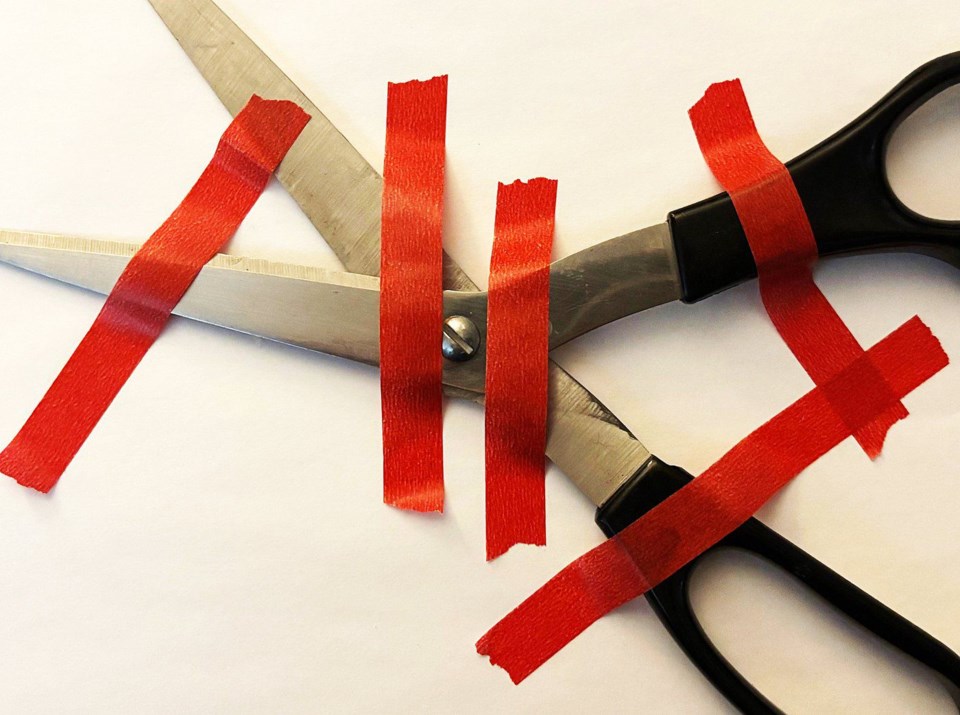The UCP lacks the transparency and oversight to assure Albertans its efforts to reduce red tape aren’t dangerous, an NDP shadow cabinet minister said.
Gurinder Brar, the red tape reduction critic, said a new permitting approach dubbed the automatic yes toolkit could compromise public safety and the environment while continuing to undermine community trust in government.
“There’s a saying that you should measure twice, cut once. But this government is skipping the measure part,” Brar, the member for Calgary-North East, said recently. “They’re just cutting and cutting, and we don’t know what they are cutting.”
The government has not conducted “any proper in-person consultations” on automatic yes, Brar said, adding that his assertion also applies to other UCP policies.
The toolkit eliminates some permits and sets a timer on others. When a preset countdown runs out of days, a permit is considered approved.
The UCP announced the toolkit Jan. 28 during Red Tape Awareness Week as it celebrated once again earning top grades in a report card published annually by the Canadian Federation of Independent Business.
Alberta leads Canada in red tape reduction with a score of 9.5 out of 10 and a grade of A in CFIB’s 2025 report card, ahead of all nine other provinces and the federal government. The province also topped the report card in 2024 with a 9.4 rating and an A grade. As well, automatic yes earned a “one to watch” designation this year under a CFIB awards system called the Golden Scissors.
The CFIB describes itself as Canada’s largest association of small and medium-sized businesses with 100,000 members across every industry and region.
Brar said he understands the motivation to reduce red tape. “Businesses need that, and we need it in government departments as well.”
But there’s more to the process than earning CFIB kudos. The province has failed to show that it’s consulted important stakeholders like municipalities, Indigenous communities and the business community beyond the CFIB, he said.
The Ministry of Red Tape Reduction and Service Alberta provided a lengthy rebuttal to Brar’s contentions. “A key consideration when developing the automatic yes toolkit was to ensure that appropriate health, safety and environmental protections are maintained,” said the emailed statement.
“Government ministries will conduct risk assessments to determine which of their permits are good candidates for automatic yes tools on a case-by-case basis, using criteria that consider the level of regulatory risk associated with the activity. These range from low-risk, routine activities to medium-risk and more complex activities that may require more extensive review and oversight.”
The statement continued: “In applying one of the automatic yes tools, ministries will also determine necessary steps that may include changes to legislation or regulatory frameworks, operational updates to online systems, and consultation with business and industry.”
In an interview with The Macleod Gazette for an earlier story, Dale Nally, the minister of red tape reduction, said: “We have heard from Albertans and businesses that it takes too long to get a permit approved, and we're responding to that.”
He called the tool kit a “great news story for Albertans,” asserting that the system entrenches the province as a North American leader in red tape reduction.
The framework spans 16 permit-issuing ministries and is part of a program of red tape reduction stemming from 2019’s Red Tape Reduction Act. A series of amendments centring on red tape reduction have followed, changing the original act and other legislation. Amendments last required that the government have no net increases in regulations.
Under automatic yes, two categories remove the need for approvals. Permits placed in a third category are subject to a countdown – or shot clock, as the government calls it, borrowing a term from basketball.
The ministry said consultation is ongoing. “Ultimately, government will continue to engage Albertans and Alberta business and industry as appropriate when applying any of the automatic yes tools to their existing permits. This engagement will help to inform aspects of how the tool is applied, including considerations of necessary safeguards and enforcement mechanisms, and to ensure Albertans are well-informed about the new permitting approaches.”
The statement said the tool kit will follow established protocols, maintain compliance and monitor all safeguards through routine inspections, audits and performance reviews.
“Even with the automatic yes toolkit in place, Alberta’s government will retain the ability to deny permits when necessary and appropriate,” the statement said.
The province “continues to solicit and receive recommendations on ways to reduce red tape directly from regular engagement with industries representing key economic sectors.”
Through alberta.ca/cutredtape, individual Albertans can submit suggestions for things like cutting unnecessary regulations and eliminating unnecessary or duplicated paperwork.
The government has eliminated 209,000 regulatory requirements under red tape reduction and implemented hundreds of red tape reduction initiatives, resulting in savings for Albertans that exceed $2.9 billion, the government estimates. “We will continue to report to Albertans on these and other red tape reduction outcomes and measures through our Red Tape Reduction annual Rreports, all of which are publicly available,” the statement said.
Brar questioned whether automatic yes is where the government should be putting its attention. “Businesses are still struggling, whether because of inflation, rising insurance costs or rising utility bills. They haven't reached pre-pandemic sales levels,” he said.
“So instead of working on the actual issues on the business community is asking this government to address, it’s focused on the wrong priorities,” he said.



